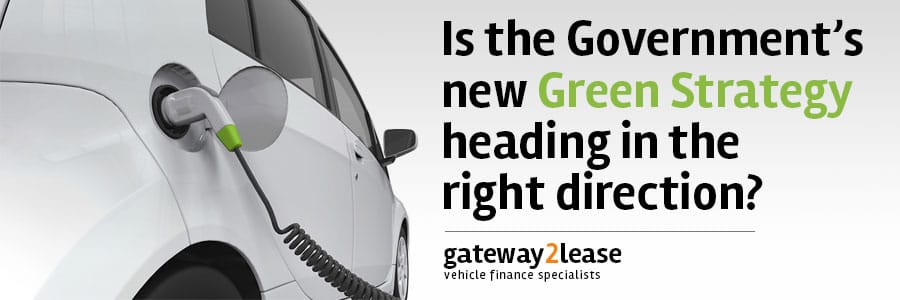Is the Government's new Green Strategy heading in the right direction?

A recent survey commissioned by the AA suggests around half of young people in the UK would like to own an electric car, compared with just 25% of their parents. Something about electric cars is still putting off a lot of drivers, even if their children are fully behind the technology.
There aren't enough charging points. The range is too short. They cost too much. They take too long to charge. There just isn't enough choice. The number of people holding each of these perceptions ranges from 85% to 67% of the 10,000 drivers surveyed. It seems there is still some convincing to be done.
Step up the Government's new green “Road to Zero” strategy. They want to see all new-build houses fitted with charging points as standard. New street lights to contain charge points for on-street parking. More money to expand charging infrastructure. A ban on sales of conventional petrol and diesel cars by 2040. That should go some way to allaying those aforementioned concerns.
Or is it?
It might be if Greenpeace hadn't described it as a “road to nowhere” that's a decade behind other countries. WWF described it as “a laggard target” that the government is sticking to despite calls for a faster transition. The Society of Motor Manufacturers and Traders has called for “a strategy with realistic ambition levels that supports industry's efforts, allows manufacturers time to invest, innovate and sell competitively, and which provides the right incentives to take the consumer with us.” They are asking but they aren't getting. Even Lord Deben - Chair of the Parliamentary Committee on Climate Change - urged the government to “get on with it”.
So the Government's new strategy is either a step in the right direction, or a meaningless and ineffective piece of fluff. Great.
Now what?
To be perfectly frank it doesn't really matter. It doesn't matter if you think it's too much too soon, or nowhere near enough to allow us to meet our emissions obligations over the next few years. It doesn't matter if you want an EV or not. It doesn't matter if you are fully behind the technology or still clinging on to your doubts. All that really matters is that - sooner or later - the change will have happened.
We can go back to those initial perceptions that surround electric cars and see the change happening around us.
There aren't enough charging points yet, but there are 16,000 of them around the country and many more being installed every day. Range is constantly improving as battery technology is refined, and when the average journey is under 25 miles a 200 mile range is more than enough.
Costs are falling as the technology matures, and you can still get a grant of up to £4,500 when you buy an EV as well as saving on running costs. Rapid charging points are improving to the point where an 80% charge should take around 30 minutes, and a dedicated charger for your home could also be covered by a grant too.
As far as choice is concerned there are currently 38 different models eligible for plug-in grants, plus a few that aren't - and more manufacturers are adding electric cars to their product line-ups - so finding an EV to suit you is becoming easier and easier.
Some of this is happening because big companies like Shell and BP are buying the charging infrastructure providers to add to their forecourts. Some of it is driven by government policy. Some is down to everyday people making a decision to buy an EV because it saves them money.
This new government policy isn't really good or bad. It's not a “road to zero” or a “road to nowhere”, it's just another step on an inevitably long and complex journey to a more electrified future.
View our latest blog posts

Categories
Pages
We are a family run business based in rural Worcestershire. Our team of 38 staff are on hand to provide an exceptional service to personal and business customers.
Read More
